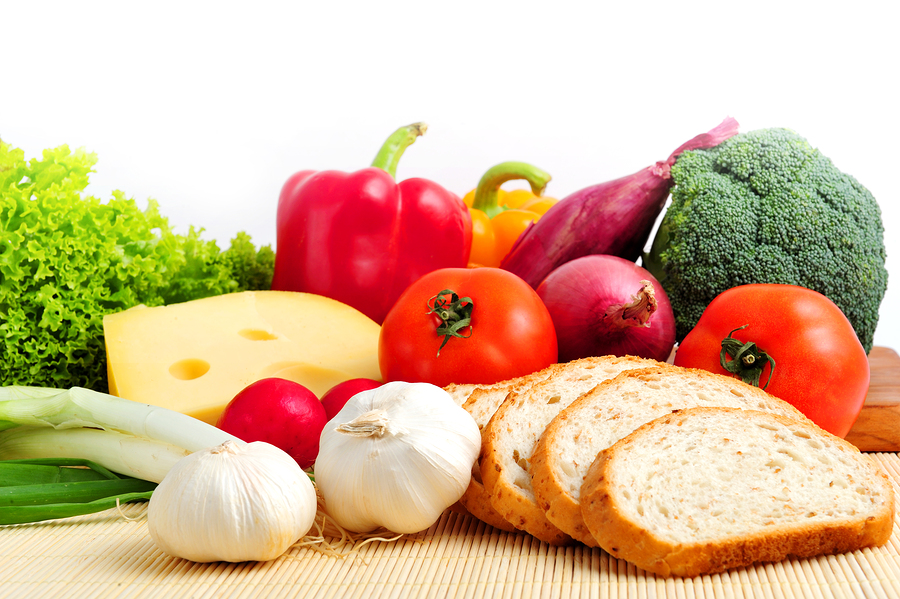What do you need for a healthy diet in your 50s?
Are you interested in how to achieve a healthy diet after 50? Why is it important? Then read on to find out more.
Protein
As we get older our nutritional needs change as does our need for protein. Protein helps maintain muscle mass which is important for overall strength so it’s important to ensure an adequate intake of protein as we age.
Protein is not just found in meat and fish, there are also good sources of protein in eggs, nuts and dairy products.
Vitamins and minerals
All vitamins and minerals are important for the body, but as you get older, calcium and vitamin D are especially important for muscles and bones.
Good sources of calcium: dairy products such as plain yoghurt, milk, cheese and kefir. Don’t forget you can get the same amount of calcium from low-fat options as full-fat versions.
Other sources include tuna, salmon with bones, meat e.g. offal, and egg yolk, tofu, dark green vegetables and fortified breakfast cereals.
Your body absorbs calcium with the help of vitamin D which you can get through sunshine and diet.
Good sources of vitamin D are oily fish (such as mackerel, kippers and sardines) as well as fortified breakfast cereals and fortified spreads. You may not get enough vitamin D from food alone so you may be recommended to take a supplement.
Fats
Fats are essential to give your body energy, support cell growth and maintenance and help absorption of vital nutrients. Fats and oils are very high in calories so it is important that we watch the amount of fat and fatty foods we eat.
There are two main types of fat – saturated and unsaturated. Saturated including trans fats are considered to be less healthy than unsaturated fats because they can increase our risk of heart disease.
Saturated fats include lard, butter, fat on meat, while trans fats may be in processed foods e.g. cakes pastries, and biscuits labelled as ‘partially hydrogenated vegetable fats/oil’.
Unsaturated fats/oils are found in seeds and grains, nuts, and avocados. They can be either polyunsaturated e.g sunflower, soya, corn, and sesame oils or monounsaturated e.g olive and rapeseed oils. Other sources include oily fish such as salmon, pilchards and mackerel.
Carbohydrates are broken down into glucose (sugar) before being absorbed for your body to use as energy.
There are different types of carbohydrates
- Simple/free sugars/added sugars e.g. in biscuits, chocolate, cake, fruit juices, honey
Natural sugars are found in milk, fruit and vegetables. - Complex/starchy carbohydrates e.g. bread, rice and potato. Choose wholegrain varieties of where possible e.g. wholegrain bread.
Dietary fibre is the edible parts of plants resistant to digestion and absorption in the small bowel. It is completely or partially broken down by bacteria in the large bowel.
Fibre is found in starchy foods such as wholegrain cereal products, fruit and vegetables and nuts and seeds.
Water
Water is a major constituent of the body, with many functions including transporting nutrients. Having regular drinks throughout the day will help you stay well hydrated especially when it is hot or you are exercising. Keep an eye on the colour of your urine; if it is dark you need to drink more.
Please note, you should always consult your doctor/nutritionist/dietitian/pharmacist for any health-related issues.
Latest posts by Sally - Silversurfer's Editor (see all)
- Discover the beauty of Scotland with Largo Leisure Holidays - April 10, 2025
- Planning ahead for peace of mind - April 9, 2025
- 50+ and fearless: Breaking free from limiting beliefs to enjoy life - April 8, 2025
- Easter Simnel Muffins - April 8, 2025
- Easter egg hazards for dogs - April 8, 2025




















